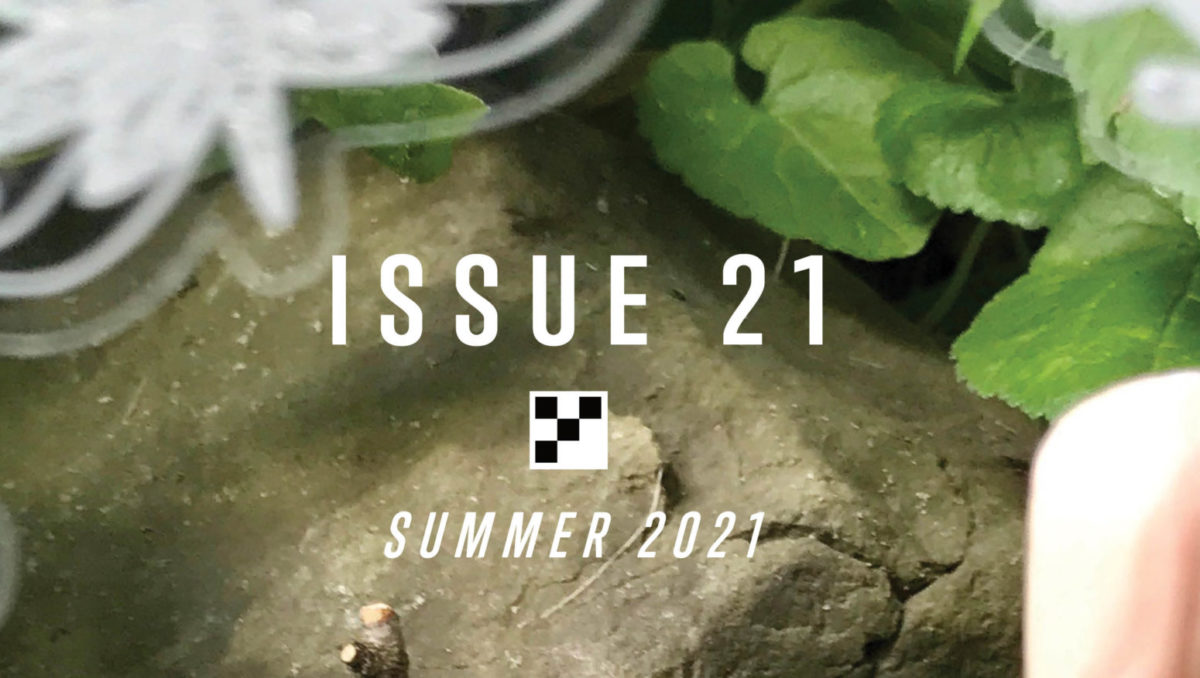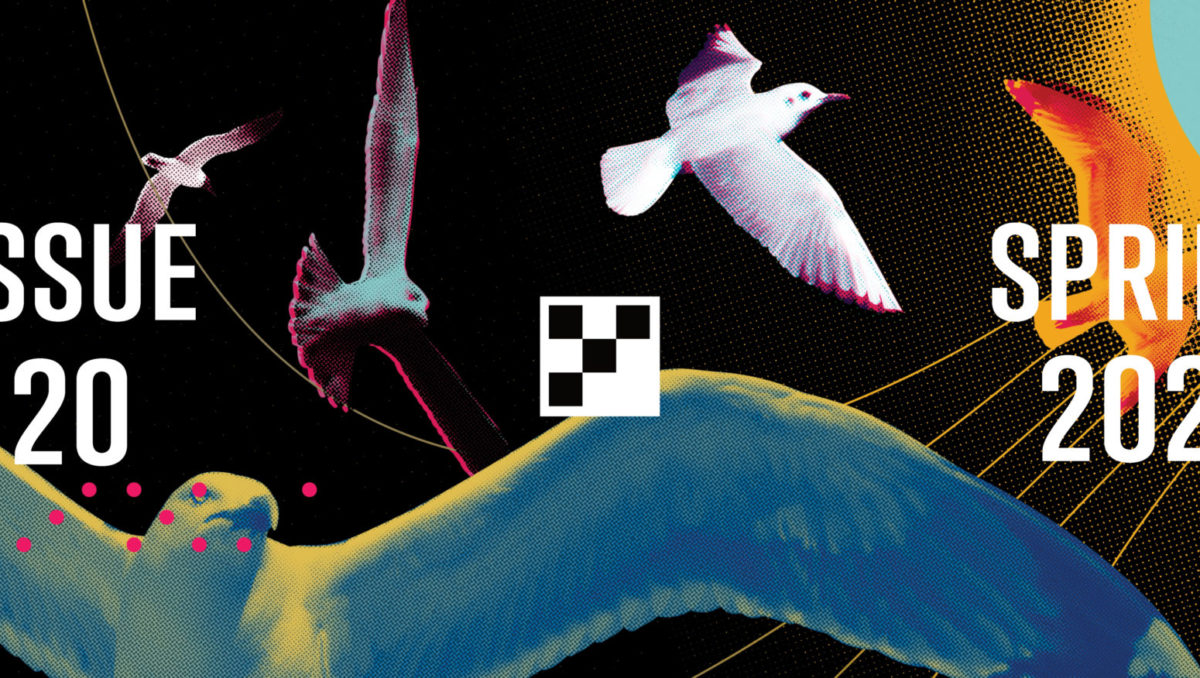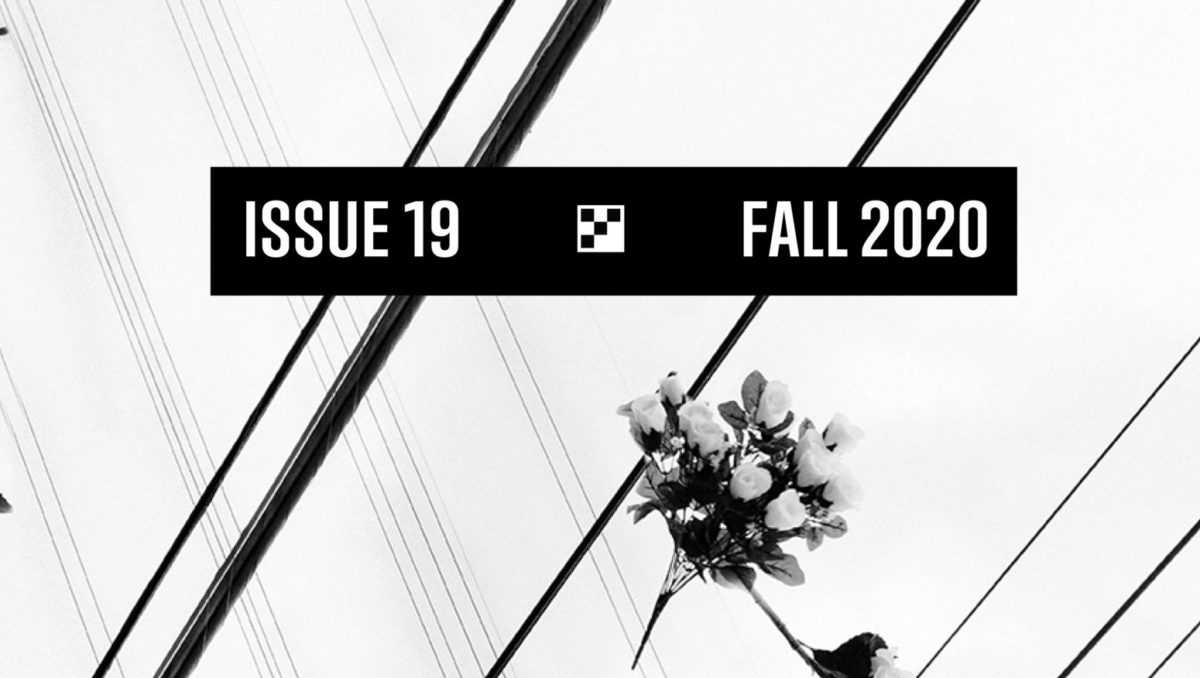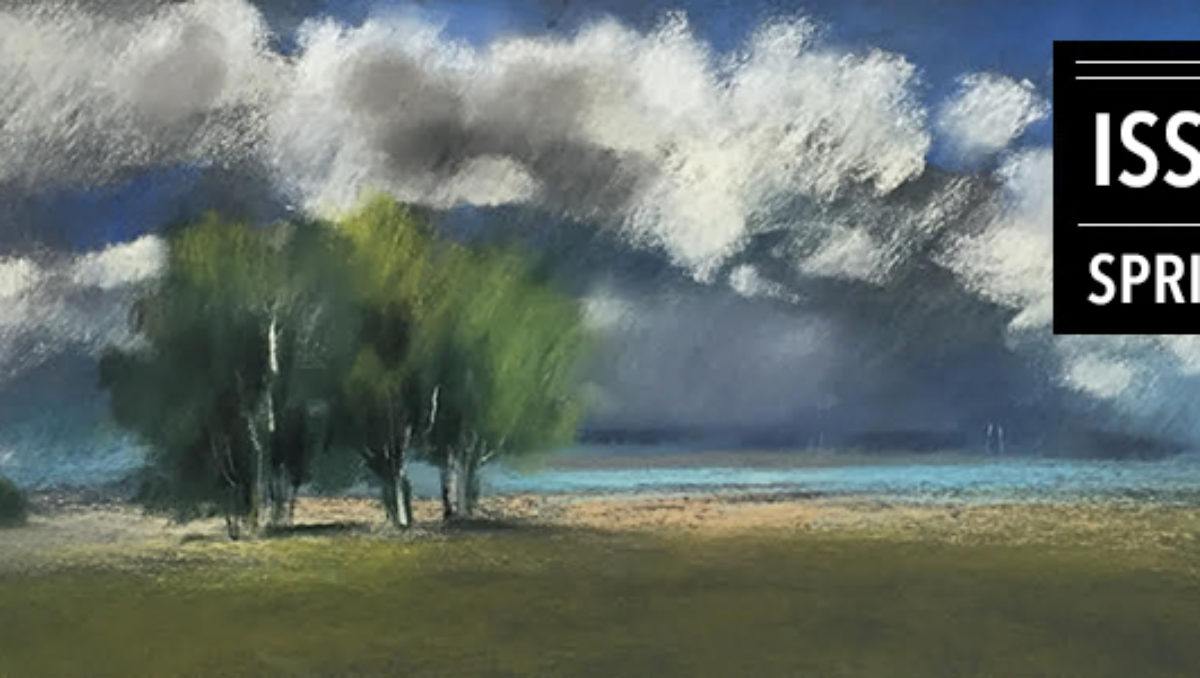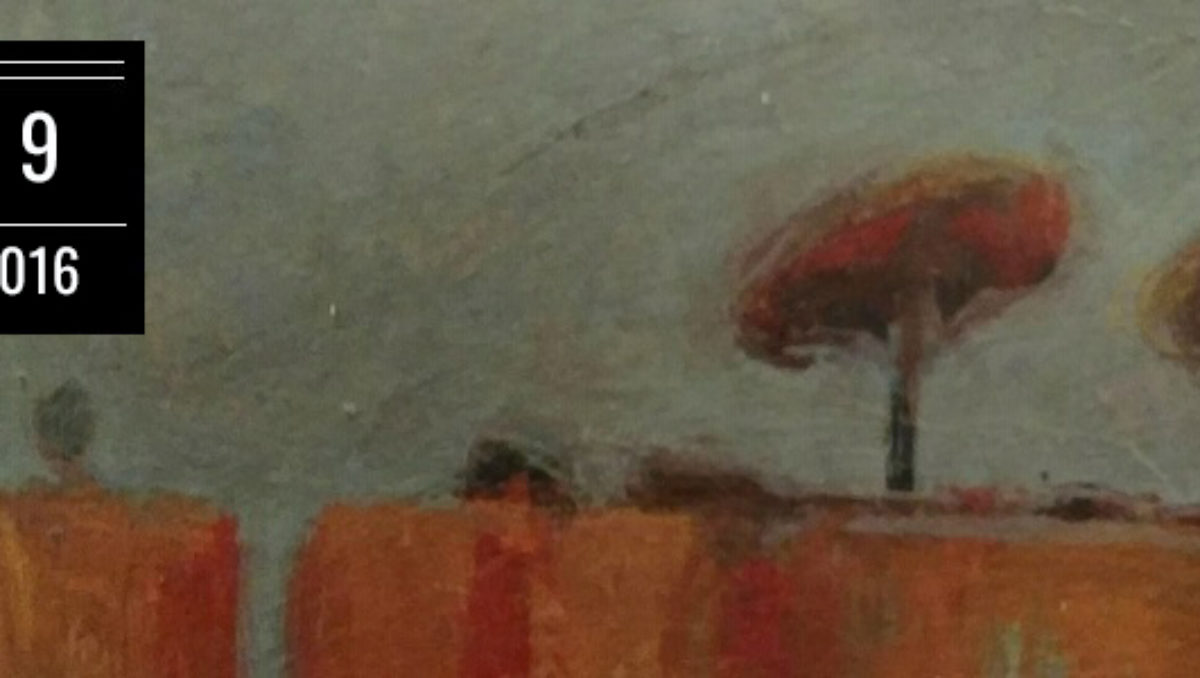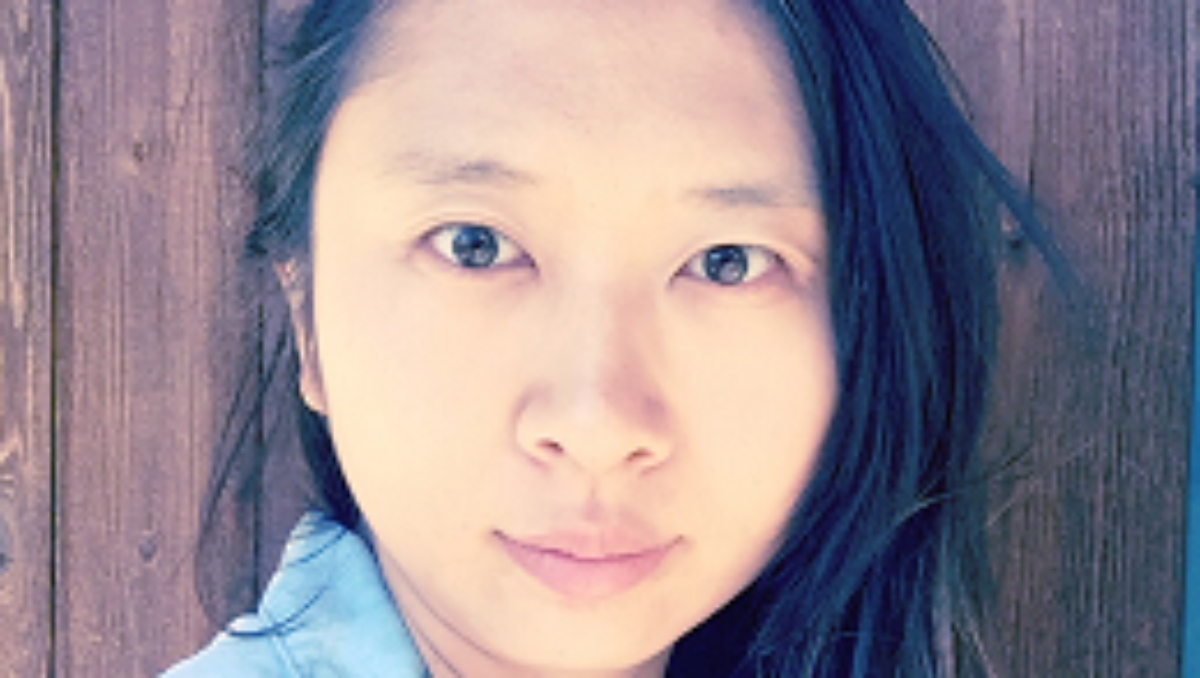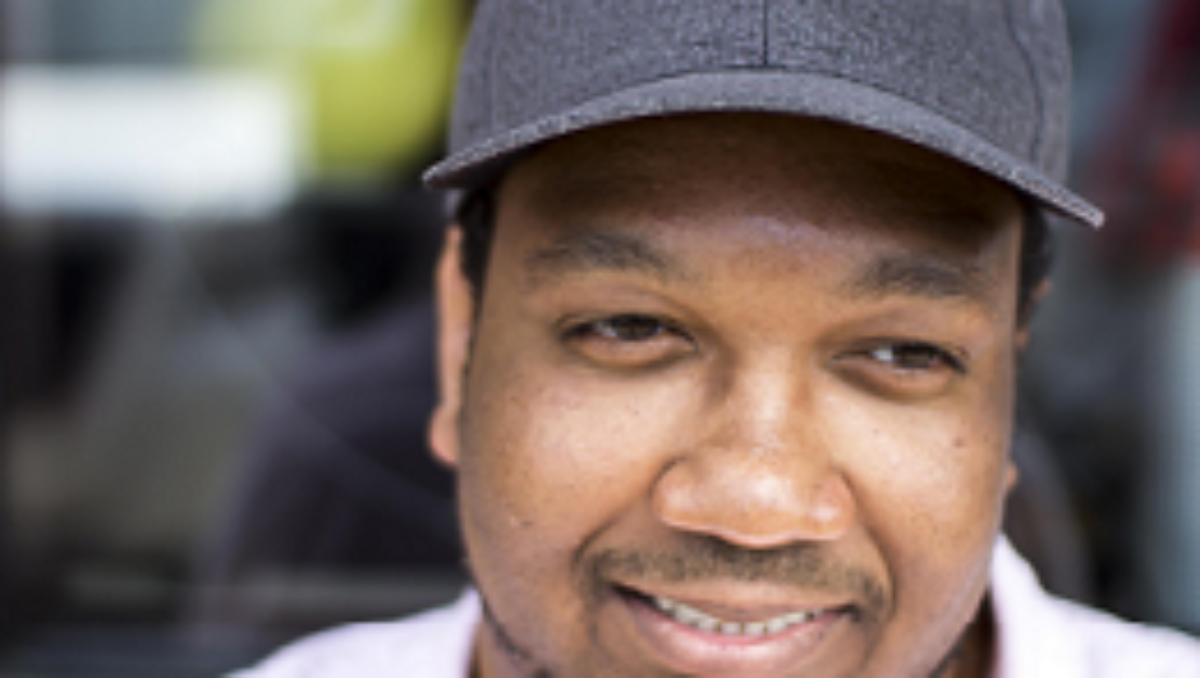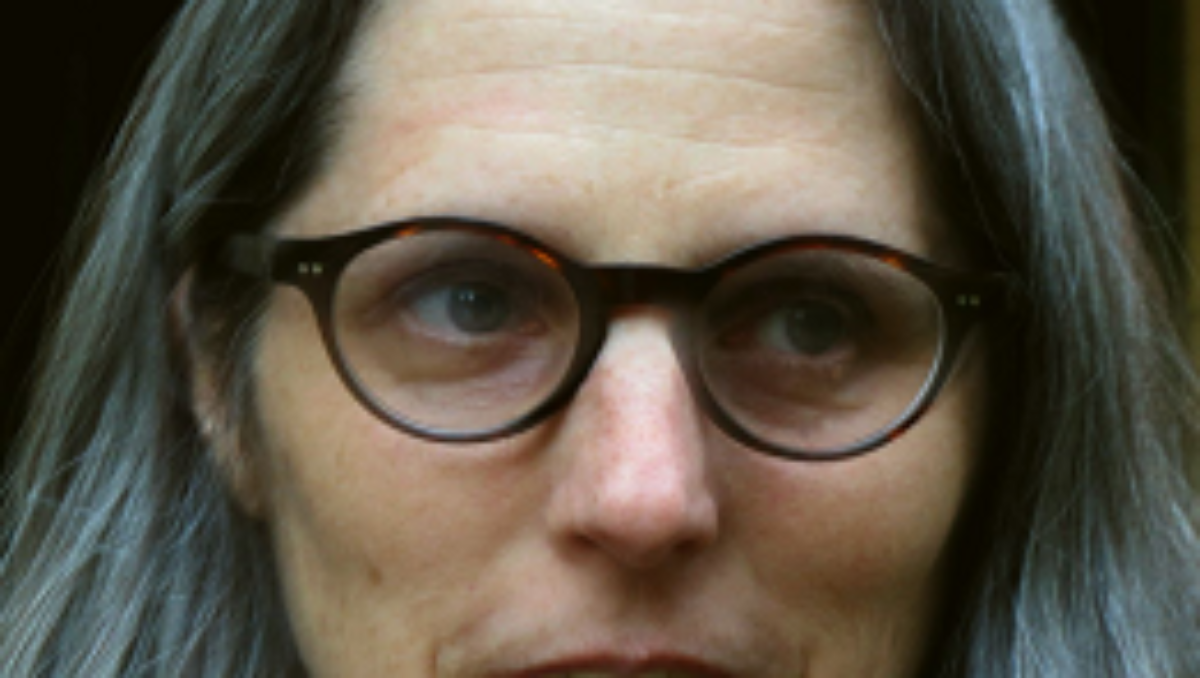ISSUE 21
POETRY
BECAUSE I MAKE MYSELF NEW EACH DAY by Rebecca Macijeski
AND WE TRY TO FIND GESTURES FOR OUR HUMANITY WHEN WE’RE YOUNG by Rodney Terich Leonard
THE HOUR OF THE WOLF by David Roderick
THREE POEMS by Sarina Romero
FIVE POEMS by Amorak Huey
TWO POEMS by Augusta Funk
TWO POEMS by Irène Mathieu
GYM CRUSH by Josh Tvrdy
WHEN SUN SHINES ON WATER by Stella Lei
ANOTHER OHIO ROAD TRIP by Erika Meitner
COME CORRECT by Erika Meitner & Traci Brimhall
TWO POEMS by Hussain Ahmed
FICTION
LOVE AND LEAVING IN THE CONDITIONAL by K-Yu Liu
EGG WISHES by Lucy Zhang
DON’T CALL ME YOUR PRINCESS by Megan Culhane Galbraith
AWAKE UNTIL DAWN by Pete Prokesch
ART
- Published in All Issues, Issue 21, Issues
ISSUE 20
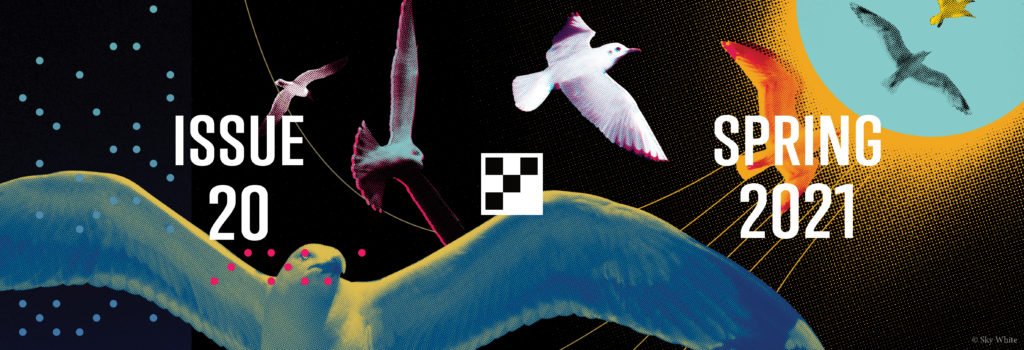
ISSUE 20POETRY SING, O BARREN ONE, WHO DID NOT BEAR A CHILD by Jessica Jacobs THE BOY IS by Junious Ward GUILT by Pablo Piñero Stillmann THE BEETLES by Dan Albergotti BATAAN DEATH MARCH AS TAROT CARD: NINUNO NG RATTAN by Hari Alluri FANTASY by Grace Q. Song UNTITLED (OIL ON PAPER) by Marie Ungar OK IT’S TIME TO LISTEN UP ALYSSANDRA by Alyssandra Tobin SHOWERHEAD by Annesha Mitha THEY THREATEN MY LIFE by Ron Riekki PORTRAIT OF LIABILITIES by Kelli Russell Agodon TWO POEMS by Jason B. Crawford ALL SAID & DONE by C.S. Carrier
FICTION SUCKER by Maggie Su MOUSE HOUSE by Amelia Brown
|
|
- Published in All Issues, Issue 20, Issues
ISSUE 19

POETRY
COMMENCEMENT SPEECH, DELIVERED TO A HERD OF WALRUS CALVES by Matthew Olzmann
TWO POEMS by Melissa Crowe
TWO POEMS by Ariel Francisco
BALIKBAYAN FILLED WITH THEORY by Dujie Tahat
TWO POEMS by Keetje Kuipers
IF YOU ARE READING THIS by James Hoch
SIX ECCLESIASTICAL LOVE SONGS by C.T. Salazar
A POEM WHERE GOD IS A PARABLE by Jay Kophy
VENUS DE MILO WITH DRAWERS: SELF-PORTRAIT MADE OF MINK & PLASTER by Caroline Parkman Barr
MEMORIAL DAY by Chelsea Dingman
I USED TO PRAY by Yuxi Lin
TWO POEMS by Jessica Johnson
FICTION
EXCERPT FROM THE HISTORY OF LITERACY by K-Ming Chang
MONSIEUR REYNARD by Holly M. Wendt
ALL WE HAD TO DO WAS SWIM by Jon Bohr Heinen
ART
FOUR WORKS by Suzanne Koett
- Published in All Issues, Issues, Uncategorized
ISSUE 18
- Published in All Issues, Issue Page 1, Issues, Uncategorized
ISSUE 11
POETRY
ISO by Sophie Klahr
Two Poems by C. Dale Young
MRI by Leila Chatti
Even As You Tell Me of the Horses by Ama Codjoe
Snakes of Southeast Asia by Michael T. Lawson
Two Poems by Caylin Capra-Thomas
Excavating by Tingyu Liu
Dear Bear by Ae Hee Lee
Four Poems by Rebecca Hazelton
Stinging Nettle by Hanae Jonas
Summer Triangle by M.J. Bender
The Nature of Love by Aaron Belz
FICTION
The Ocean Indoors by Bonnie Jo Stufflebeam
A Little Something by Dawn Abeita
The Hotel by John Poch
ARTWORK
Wendy Goldberg
- Published in All Issues, Issue Page 3, Issues
TWO POEMS by Derrick Austin
TIDEWATER PSALM
…in heaven it is always Autumn
—John Donne, Christmas Sermon, 1624
By sunset, the crickets’ trilling begins
in the airless damp, rich with salt
and the sulfurous fumes the Gulf flags off.
Bristling cattails brush my hands.
The light-crested water rises and falls
like a chest flecked with blonde hairs.
I feel estranged from You.
A shoal of minnows breaks, silvering
my ankles, like a mirror; my heart swims
in gladness at the changeable world.
Tell me in heaven it’s warm enough to wade
into this fine transparence, never want for air,
only light and water, and be as the river
flowing into the sea which gives up its name.
PERSIAN BLUE
after the BP oil spill
Tampa Museum
1.
We leave the jewels and daggers, a long wool rug
whose dyes have deepened to rust—
you don’t notice. Near the exit, two guards chat
about the spill. A sea-blue bowl
dazzles me, its craquelure like arteries, blue ink
where blood would be. No one
knows the name of the woman in the porcelain,
offering a man sweet cakes.
Could she be Scheherazade, each night always the first,
cushions unchanged, pastries never stale?
They’ve been buried centuries, no one to complete the story.
Is it still that dark underwater, the guards ask?
You tell them of the dead zones, cloudy-
eyed fish covered in sores and scars; of fishermen,
their nets slack with fewer crawfish and oysters.
I come when you call, swept away from the bowl,
full of unfulfillment, and down terraced steps.
In the park by the riverwalk, children dodge jets of water,
their joyful noise sharp as crystals.
The brown Hillsborough River flows into the bay
and circles the dozens of spoil islands.
2.
Tonight, our thousand and second night,
tell me the story of our laughter
through sudden summer rain.
Tell me the story of salt: on your shoulder,
chest, and chin. Tell me how that first week
we seemed to know our pasts by heart,
where we’d been and where we planned to go.
Tell me the story of how we woke up wet
in each other’s arms and watched the Gulf
widen into deep water where, beyond our vision,
an explosion claimed eleven workers,
smoke billowing skyward, a dark reflection
of the darkness below. Who’s to blame?
Who knew what? We can’t keep any story straight.
3.
Somewhere the Gulf still rolls brightly ashore—
after oily booms were hauled in,
dispersants and matted wings, “Closed for Business”
and wringing hands, and thousands
of small fish, pale as plaster dust. On that shore
crabs shuffle out at night and mate.
We watch gulls float down the old river, vanishing
under a bridge. Plastic bottles idle
in bilge, until an unseen current carries them away—
the way we’ll part.
Across the river
the university gleams, its confection of bricks and minarets
like gingerbread with icing dusted silver.
Perhaps, Scheherazade’s bowl—its story inked into bone
and china clay—would fill for us with wine.
We would trade it between our lips and see the picture
rise with every sip while our faces warm
and you tell me the story in which I mistake you for the story.
- Published in Issue 8
SELF-PORTRAIT AS HAN TO LEIA, ON HOTH by Amorak Huey
After Dean Rader & Robert Frost
Another planet battle-scored & near-exterminated: we crave this cave-chase & escape plan,
our evacuation inevitable. We have always been outnumbered & every system is remote
from somewhere. Our future pendulums away from us, our small stars extinguish each other
in the heart’s dark sky. You are not afraid. An empire grows in my chest. Pistol me open,
let my rebellious ribs steam into the frost, feed on the warmth of me. We cannot destroy
all that threatens us & ice will not slake your salted tongue. Given flame, we choose to burn.
TWO POEMS by Sally Wen Mao
MUTANT ODALISQUE
This is not an ode. February’s ice razor scalps
the gingko trees, their hair pulled skyward
like the ombre roots
of young women. March harrows
us mottled girls. Vernal equinox:
a hare harries the chicks, hurries
behind wet haystacks. Livestock.
Gnats. The glue-traps are gone.
March, ladies. March for your dignity.
March for your happiness. March, a muss
of lidless eyes. In the forest, a handsome man pisses,
puissant, luminary’s ink leaking on trees.
Penury I furl into the craven lens, in its mirror, a pulse:
webcam where I kiss my witnesses.
They watch and watch and watch the butcher
cut, the surgeon mend, they watch the glade
of crushed femora, they watch my dorsal fin,
they watch my scales dart across the cutting
board. They watch the way I open, flinch, bent
against the wind that beheads the nimbuses.
Or April’s turning toward ecstatic sob—departure.
Networks freeze, all sloe, all ice. Transmitters
falter. The cicatrix soaped, cilia & pus
rubbed raw. No machine. I dare
my witnesses to stick their pencils on me.
Do they marvel at a conquest—
blue flesh & gills. Do they think of me as soiled
or new soil. Do they take notes in their medical
journals. Am I their inspiration O Vesalius god
of anatomy is that why they ask so softly for my name.
OCULUS
This morning I peruse the dead girl’s live
photo feed. Two days ago, she uploaded
her confessions: I can’t bear the sorrow
captions her black eyes, gaps across a face
luminescent as scum. I can’t bear Ithaca snow—
how it falls, swells over the bridges,
under my clothes, yet I can’t be held
or beheld here, in this barren warren,
this din of ruined objects, peepholes into boring
scandals. Stockings roll high past hems
as I watch the videos of her boyfriend, cooing:
behave, darling, so I can make you my wife.
How the dead girl fell, awaiting a hand to hold,
eyes to behold her as the lights clicked on
and she posed for her picture, long eyelashes
all wet, legs tapered, bright as thorns.
Her windows overlook Shanghai, curtains drawn
to cast a shadow over the Huangpu river,
frozen this year into a dry, bloodless
stalk. Why does the light in the night
promise so much? She wiped her lens
before she died. The smudge still lives.
I saw it singe the edge of her bed.
FOUR POEMS by Tommye Blount
BAREBACK AUBADE WITH THE DOG
Thicker than its master’s thigh,
I saw that dog gnawing its leash—
and didn’t I know better? Knowing my fear
of dogs, I thought, “If I walk faster
and stay calm, then—”
That leash, thin as Yes, snapped. Of course
the dog snapped too and I
wasn’t fast enough—only two legs then
instead of four. I was afraid, yes,
but I didn’t run. With my eyes shut,
I braced for what comes to those afraid
of what they refuse to see. But
that time, the dog headed for the lake.
It passed me by and I watched
the water gulp it down—its paws and then
its legs and then its flanks and then gone
was the scruffy heart
of its head. Wasn’t I sure it would not resurface
when it did? What sunlight there was
caught in its mouth a small body—its
slim head bucked twice more
against the water’s vermillion ripple.
AND THE DOG COMES BACK
from the lake with nothing
but the bark
it left with—an unintelligible
agony. Isn’t that, me
being the two-legged kind,
assumption and projection? A bark
sounds like a bark. A call of danger is a call
of ecstasy. It sloughs
the lake off its flanks,
sniffs the spittle of its chewed leash—
dangling from a hand
which too doesn’t know any better.
Control yourself, the dog
is told. The impossible leash
stings its back. So this is restraint
—I think as the dog
feigns satisfaction
in the dull salt
of a featherless palm. No,
you’ve caught me. I’m not there. I’m the animal
still fucking in a stranger’s bed.
His tongue licks my mouth. I whistle,
but I do not listen.
THE RUNTS
It’s my hand—so close
it could be bitten
clean off. Tonight
he is the dog—this bedded stranger
not using his words,
not responding to any name.
He lets me keep my hand—
returning it back cleaner
than it left. I haven’t learned my lesson
so I give him the other one.
No, not could be bitten. He bites my hand
and I howl like something
that should not howl
down his throat. We are both dogs
now, mouthing the dark until
we are not mouthing the dark.
We are sinking in the hold
of whatever is willing to hold us.
LYCANTHROPY
As if I can’t understand
my body is more than surreptitious pact
between nerve
and the crime it loves,
they’ve cornered me. And in this light
my frame is haphazard and threatening,
but I can’t speak—their leather collar still cinched
around my neck, a silver
leash hook for each pair of eyes daring me
to attack. Each man armed
with a hot muzzle, a mouth
full of scripture and no to aim
onto my back—now bent
over a prayer they mistake
for a growl. In this place,
there is no common tongue,
I can’t understand them,
so I can’t follow the order
that follows each leash,
so they beat me
until skin becomes wound
then scab then hide.
THE INTENDED by Rebecca Berg
From:
Wendy Kochman
27 Wayfarer Circle
Lafayette, CO 80540
To:
Professor Benjamin Schneider
Comparative Literature Department
New York University
13-19 University Place
New York, NY 10003
March 2014
Dear Ben,
I wonder how your life is. Are you happy sometimes? Are you well? Do you have a companion, and in your work do you still try to articulate the impossibility of articulating outside the Law of the Father? Really, I don’t know the first thing about you—I was going to say “anymore,” but I’ve been thinking lately that I never did. Me, I continue to tilt at the impossibilities, which is why, I suppose, I write memoir-inflected literary criticism that only rarely gets into print and why I have been thwarted in nearly every material ambition.
Do you remember once, riding home from school in the carpool—must have been eighth or ninth grade?—we were talking about the evils of car culture, and someone said, Well, when you’re adults you’ll want to have a car.
I’m going to have a horse, I said. (I didn’t even like horses.)
You were silent until someone prodded: What’s Ben going to have? And you said, uncomfortably, I’d like to have a small car.
But none of that is why I’m writing. You’ve been figuring in my dreams, Ben, bad dreams that at long intervals over these twenty years have erupted, like some dormant virus, in rashes. Sometimes David will sense my mood and ask what’s wrong, and I’ll say: I had a Ben Schneider dream. It’s a known phenomenon, a Ben Schneider dream, a shorthand between us. Oh no, he’ll say, what did he do this time? David teases when he’s at a loss, and he can neither understand nor alleviate the black restlessness that seizes me in the wake of a Ben Schneider dream. For days I go about sick at what my life has not been, suffering more dreams, until I tell myself this can’t go on and zip myself up.
My conscious mind is in fact perennially naïve and forgetful—I wonder if you remember that about me?—and for a long time I couldn’t fathom why my dreams should cast you, rather than, say, my mother as my persecutor. My clearest memories of you dated from the best years of friendship, from our late teens and early twenties, from long talks on early summer evenings, and yes, you did most of the talking and I did most of the listening, but the air was soft and I thought I had the worst of my life behind me and a flowering before me, and if you sometimes flaunted a financial magic carpet I would never share, and if you talked compulsively of jet-setting with celebrity intellectuals I would never meet—the heart of your life always elsewhere—still, I thought you knew my worth.
__________
I wonder if you know how far I have wandered. I’m speaking of my professional life and of this parched town where I’ve now lived longer than anywhere else, although there have been other traumas. But maybe you don’t know. It seems likely that you don’t know. It seems likely that, having dispensed with Wendy Kochman, having jumped the hurdle that in some way she once represented, you forgot that such a person ever was.
And rightly. Of course such a person never was.
Nevertheless, something happened—not a vague drifting apart, but some thing. You did something to Wendy Kochman, which I am only now remembering, because nothing happened to me, because I was not really Wendy Kochman. Another way of saying this: You killed Wendy Kochman, but at the time you did me no harm. In retrospect, though, it burns; it burns because it is of a piece with exile.
Maybe I’m fooling myself, but it seems to me that the exile would not have been so total if my oldest friend had continued to know my worth.
__________
Now, I do recognize that Wendy Kochman—and I—played a role in what happened. Wendy Kochman’s role, I believe, predated mine. You came to me. Perhaps I should say: “Ben Schneider” came to me, because surely the person who accosted me no longer exists. I imagine you dispatched him too, the eleven-year-old with his black Jewfro, his baby-Buddha build, and his precocious gastrointestinal tract—ulcers being seen at the time as proof of genius—who stood up from his assembly seat on the first day of junior high to ask the principal an uninvited question of unprovoked hostility. Who soon began to bring me gifts. Seriously, Ben, you startled me. I sat across the aisle and several rows behind you; at the time we were in different carpools. Why did you pursue me, how could you even see me? He likes you, people suggested. Even then I knew that could not be. I was an unmothered, self-loathing adolescent girl who wanted with a passion to disappear: just leave me alone and let me numb out. I did not like you. Was it that you needed an ear and a mirror?—and you sensed I could be picked off the back of the pack? Was it that our grandparents had immigrated from the same bloody corner of Eastern Europe? Or that your father had heard that my father played in the Buffalo Philharmonic? Assistant concertmaster, not bad. Was it rivalry? Or was it fellowship—one untouchable to another? But it seemed you never noticed your pariah status. The tanned offspring of the Buffalo business class had no power to make you feel ugly. In this, your self-certainty, you were decades ahead of me. I believe, though, that you were spared the context in which pariah status was most intimately enforced, namely, gym class. See ulcers, above.
Out of nowhere, you laid at the feet of Wendy Kochman your passion for Rachmaninoff, which she mocked, not kindly. Sometime later, you placed in her hands an LP of Schubert’s Wanderer-Fantasie, to which she said, not graciously, Yeah, it’s good music, but why are you giving me this? I barely know you. Next you gave her the Brahms double, and later, on returning from France, you brought her a poster of Impression, Sunrise that still hangs in my living room (silhouettes in a boat, orange light on blue-gray water). You evolved fast and on your own toward that quiet dawn. Your parents were not artists; you came from shrinks and MDs, a recipe, it seemed to me, for bombast. And yet you did not bring me Monet’s glittering lily pads. You brought me the subtle nostalgia of one random moment suspended, a phenomenon that I have often encountered since but at the time was new to me. I began to feel myself standing upon an unearned authority, which I nevertheless had no intention of relinquishing.
Outside of school and carpool, we never saw each other. So you startled me again by erupting when you learned I was going to graduate early. Your mother was driving the car that day, and you, sitting in the front seat, began to shout at her. I’m just as advanced as she is, you cried, more advanced. But Ben, I tried to say, you already skipped a grade. You were too stung to hear. I even tried to tell you that it was only because that old French teacher had told my parents: You need to get her out of here. He was trying to save me, Ben. I never even had a class with him. If he knew I was a good student, it was by reputation only. What he more likely had in mind was the epithets I’d been fielding in the hallways and the soccer fields for four years (dirty lezzie), the jocks shouldering me into walls, the head of student council—son of a state senator—accidentally on purpose grabbing my breasts. Maybe he suspected an unloving home, but that’s probably wishful thinking. I don’t know that he made the right call. If I’d had another year on the viola before venturing into Eastman, I might have stuck with the music. My life might look different now.
And so you hastened to get yourself early into Harvard. Mentally, I shrugged: rivalry after all. A little deeper down, I was flabbergasted: Really? You would rearrange your life because of me?
We did not stay in touch while we were away. My first semester, I had a peak experience playing late Beethoven in a hotshot quartet, and I fell in love with the cellist, a prodigy who was so at one with his instrument that it seemed to speak words and who slept with me once and told me I was “deep” and bowed out of the group. You were, frankly, the last thing on my mind. But again you startled me; you began calling me when we were home between semesters: Do you want to go for a walk? Do you want to come over? The first time, my family was finishing dinner, and they all looked at me: Why is he calling you? I joined you—warily, later willingly. It got me out of the house; I began, finally, to think of you as a friend. You were majoring in philosophy, and American philosophy departments, you told me, were disgustingly dominated by the Anglo-American school, which was an exercise in superficiality, complacently erecting syllogisms with no notion that language was an arbitrary system of signs; that one could appeal neither to personal experience nor to empirical evidence without committing a basic ontological error; that certainly one could not talk about negative capability, as I was wont to do, because that presupposed an opposition between interior and exterior that was always already collapsed; that, in fact, one could never say anything, because the notion that there was anywhere outside of language to speak from was retrograde romantic individualism. It was a series of infuriating can’ts, and we argued, and it was as if we were pushing a piece of clay back and forth. You never told me I was “deep.” In truth you came close to naming the way it felt to be me, which was that the world attenuated upon approach, always—that I was myself a soap bubble, aleatory and hollow, across whose surface the five senses chased in iridescent colors. I loved our play. (I still miss that heady play.) Even your self-absorption became attractive, because it was not my parents’ self-absorption and was therefore something of mine. The logic was not impeccable.
Did you notice that I never called you? You must have noticed. Here is what I vaguely noticed: During all those hours of walks and talks, you never tried to touch me, though something about me seemed to feed you. Maybe you liked my mind. I wanted to think that. Simultaneously, I told myself you just needed someone to occupy you when you were stuck in Buffalo. A witness, a Penelope.
Or was it something darker? I have been forming a queasy theory about your father, which I cannot (or will not) articulate outside of narrative.
__________
So let’s cling for now to the easy insights. In graduate school, our away-from-Buffalo worlds began to overlap. You had migrated to Comp Lit at Yale; I had abandoned the viola and got myself into the English Department at Cornell, which I chose not because it was a battlefield in the theory wars, but because it provided every graduate student a full scholarship plus stipend. So. Was the problem that I was no longer a musician? Was it that we now shared a circle of acquaintance?—and Wendy Kochman was no star: at best of no use, at worst a liability. You see that I am getting stuck in a rather tedious pedestal story: You put Wendy Kochman on a pedestal, later you knocked her down. Seeing her roll at your feet, how could you not kick her?—though maybe I fell of my own accord. By the time I visited you in New Haven, the site of the kicking, I was impatient with the field of English. The price of admission seemed to be immersion in—surrender to—the not-interesting, the not-significant. Almost certainly, I dissented from too many things. What I could not see, though maybe you could, was that as a result academia was going to shed me and that I did not take myself seriously, I did not consider my life and future livelihood cause enough to fight for. Les non-dupes errent, indeed. I was having dreams then, too, dreams that I now consider premonitory, of shrouds, of flat black clouds, of stingrays settling over my face.
Your apartment in New Haven made me wistful. It had hardwood floors and white walls. I, to stay within my stipend, had settled in Ithaca for acoustic ceiling, wood paneling, and wine-stained carpet at the battered end of Farm Street. From the moment I set foot in your territory, I felt tentative, wrong-footed. You had asked me to come, and now, every time I opened my mouth you were impatient and contemptuous, as if I were an aspect of yourself, or a family member, that you were ashamed of. For my part, I was not equipped to defend myself. When I am attacked, guilt is my first reaction: I must have done something wrong to make Mommy so mad. That fogs, to say the least, my perception of the stimulus. The spears went in, and before I knew what they were, I had forgotten what they were. So I cannot enumerate the errors you charged me with. I only know that you seemed to be convincing yourself I was stupid. One occasion has stuck with me. Sitting on your futon in that bright apartment, I asked you what you thought of something you were reading, and instead of answering, you accused me of needing “pure voice.” It’s infantile, you said. Emotionally immature and politically retrograde. You had Wendy Kochman, of all people, longing to hitch herself to the authority of univocal truth.
My question frightened you, perhaps, because you had nothing to say?
Finally I did rouse to anger. I wasn’t going to stick around for this, I said, and I started whacking through the onionskin pages of the phone book, looking for the Greyhound number. That, I believe, is when you tried to hand me a pill: Here, take this.
What is it? I said.
Instead of answering, you told me I had a problem with oral receptivity. A reaction-formation, you said.
I felt bad for your roommate, who was witnessing this squabble. I felt bad—guilty, even—about the phone book in my lap: melodrama. But mostly I was squatting very still inside myself, watching myself lose, yet again, a love object. I had learned, belatedly, to love you, and post hoc ergo propter hoc, here you were, un-becoming. The person who would shove that pill on me was not a person I trusted. It was an ancient loss; I knew how to take care of it. I just needed to go away and tend to myself.
Greyhound never got called, because the phone rang first: your father. He asked you how the visit was going. I know this, because I heard you say, We’ve been fighting, but we’re working it out. Then he asked you to put me on the phone. What? What did he want to talk to me for?—as if I too were a child of his, when in truth I barely knew him. He asked me how I thought the visit was going, and I don’t know if you remember this about me either, but when I’m bewildered, words drain from me; I have to chase them down, and in the struggle I sometimes get them by a leg or foot—upside down or inside out. This time I grabbed hold of bang-up, which I meant literally but which he chose to take figuratively: Good, good, a tiff can bring people closer.
When I got off the phone, you pleaded, Don’t go, Wendy. Things will be better. Your voice was different—beaten. So I stayed.
Come to think of it, your father had startled me once before. We’d been in your kitchen talking, and he appeared with a camera and wanted us to go outside for a picture. What? Well okay. We stood on the grass. Stood like manikins, side by side. Hold hands or something, he said. I remember thinking, Oh, he’s got the wrong end of the stick. As I write this, I wonder: what else didn’t come from you? Was calling me all those times even your idea? Once—this is coming back to me, now; I’d forgotten this episode—you invited me to spend the night with you. I was surprised: Really? With your parents in the house? They were cool with that? Well, okay, but I couldn’t stay all night; that wouldn’t be okay with my parents. Ugh, you said. Wendy, you’re so afraid of your parents. We went up to your room—the only time I saw it—and lay down and held each other. When you got an erection, I reached under your clothes and wrapped my hand around it, and you said: I can’t. We talked instead; I was nothing if not flexible. Pretty soon you said, Wendy, I’m fading, and then truly I did not want to be there anymore.
How could I not see? Well, naïveté. But honestly, I can count on one hand the times I saw your father, and those sometimes years apart. You of course said nothing—until finally, having come out to yourself and then to your family, you told me your father had accused your mother of failing to consummate their marriage since she had not given him a real son. I was appalled for you, Ben. If I remember correctly, that happened before I came to New Haven. How terrible that your father was still hoping to make a match between us.
These days I also feel for my younger self. The it in the middle.
__________
For all intents and purposes, our friendship ended during that weekend in New Haven. We had a couple of encounters in Ithaca. I don’t remember why you came. It wasn’t to see me, I don’t think, but you stopped by. Once you spent an hour or so on the window seat of my new apartment, a studio in a rambling Queen Anne on the corner of Titus and Albany. My boyfriend from Farm Street had broken up with me, and I had found this beautiful, tiny place for myself, hardwood floors and twelve-foot ceilings, oak woodwork and bay windows, and then my new boyfriend had moved in with me, not altogether in accordance with my preferences. You and I were almost strangers by now. So you sat politely while Keith and I discussed the enneagram. In a spirit of mischief and inclusion—I knew you didn’t know the enneagram, too middle brow—I pointed out the personality type I thought fit you and handed you the book. You said, But this is mostly positive. Your surprise betrayed your underlying contempt, as did your silence about the retrograde politics of typing people, as did your reference to a potpourri burner as “that thing in the bathroom” and your attempt to make conversation with Keith, who was black: “Are you religious?” Oh, Ben, if you had not been my friend, I would not have believed you were real.
I remember another incident from that visit. We were at an English Department function. You were my guest, but of course you were a Yale theory guy who knew Derrida personally, which meant that after all the room was more your room than mine, and you and I were standing together, and Julie Somebody—I seem to have permanently suppressed her last name, but she was one of those acolytes who had imbibed enough Lacan and Foucault to convince herself she could acquire an aura by committing ostentatious social cruelties and not enough to understand that her dutiful Peter Pan collars were always going to make people feel sorry for her—that person invited you and noticeably did not invite me to “a little party” at her place.
You hesitated. You wanted to go. You so wanted to go.
I said: Ben, if you go to that party, I will never speak to you again.
Well. You didn’t go. For a long time, I felt cynical about that. He might as well have gone since we never did speak again, not really. Now I’m less sure. I could have dismissed you outright, if you had gone. And then you never could have returned, you never could have haunted my dreams.
__________
I saw you once more, at the MLA. It was the last morning of the conference, my last year on the market, in every way an epilogue. I had finished my dissertation and had failed for more than a year to get any piece of it published, and I just had finished the one interview I’d landed, and I knew I was not going to get the job, and I was sitting on a couch in a hotel lobby with Keith, and you passed by. You didn’t so much speak to me as vaguely address yourself to two distant acquaintances: I’m not going to get anything, you said, and I had two reactions, the first of which I was ashamed of: schadenfreude. Next came skepticism. Really, Ben Schneider will get nothing? You did not think to ask about my situation.
Sometimes, in my dreams, you walk by me and fail to see me, and if I call out you fail to recognize me and then, looking guilty, you pretend to know who I am.
They’d asked me in the interview what I’d been doing since I’d finished my dissertation. Working, I said, at the reference desk in the graduate library at Cornell. Even as I said it, I knew I was self-sabotaging; I tried to recoup by adding: I consider it an extension of my education. The room froze, they in embarrassment, I in fury at myself. And in disgust. Why should my answer have sounded flip? In any reasonable interview, it would have been an honorable answer. Only in our profession did needing to work disqualify you from working.
__________
I was going to sketch a narrative of the dark years that followed, but I find that I can’t. It was the end of dignity. There’s no place to tell it from. I just can’t.
I lived with a man who drank. I left him. For a time I temped in Washington, DC. Once they sent me to an international law firm, to proofread lists of chemical names in Danish. No matter that I didn’t know Danish; this was letter-by-letter comparison proofing. Mindless, mechanical work that nevertheless required your full attention. They put me at a little table facing a wall in the office of a smug German lawyer who spent the afternoon calling his friends in Frankfurt to brag about his salary. He had no idea—never did learn—that I understood every word. That he was distracting me. Can’t afford a McMansion, he kept saying, but I’m not complaining. Ich beklage mich nicht.
__________
“When you are up,” Barbara Stanwyck is said to have said, “you are accepted; when you are down, it is as though you do not exist.” She was talking, of course, about Hollywood.
And let’s be honest: If you had looked for me I would have hidden. David I met at the National Academy of Sciences, where he was researching mercury pollution and I’d been hired to do some photocopying. Three months later he got invited to rescue fragile ecosystems in this land of magpies and tumbleweed—a dream of his: to work outdoors. To live in the shadow of a mountain. He brought me a Cracker Jack ring and held out an orange gazania, which, when I laughed, he stuck in his buttonhole, and he said, Um, um, um, would you marry me? I was six months pregnant with twins, not by him—by Keith, who didn’t know. That’s the kind of man David is: nothing like you.
When the kids were little, I pulled the viola out. I had not touched it in twenty years. Do you know what desert air does to wood? My poor old Czech viola. When I opened the case, the strings lay on the belly of the instrument, flabby as twine. The sound post clinked, and the bridge slid between the bouts. It was in the shop for months; in the interim they sold me two quarter-sized violins for my babies. Benjy—named after David’s father, in case you were wondering—prefers mountain biking, but Emily took to music. I taught her myself until she played with a grace I’d never had and I could teach her nothing more. When she was ten, I took her to the violin professor at the university. For the next seven years, I listened from the living room, often in tears, silent ones, so as not to unnerve her.
Last year they started college. This year David got cut to halftime, and I found myself some adjunct work at community colleges and night schools, literature and composition. I even have library privileges. So, following your latest eruption in my dreams, I have been catching up on your publications, all those articles in the nineties, culminating in a book whose title stabbed me in the solar plexus—Eruptions in the Future Perfect: The Return of Theory. Apparently it was widely reviewed when it came out. In Diacritics I found this, from one of my Cornell classmates: “Nobody does the uncanny better than Schneider.”
Well. How entirely true. But that was nine years ago. And silence since. I wonder what is happening in your life. I wonder how that silence feels.
__________
Last night you glided past, conversing with a beaky, bespectacled woman in a broomstick skirt. She was inviting you to co-edit an anthology on shadow selves. Hey, I tried to shout, but I could only croak, and you looked at me blankly, bleakly, and the woman turned on me, impatiently reiterating the ground rules: You are nothing, Wendy Kochman. Stop making trouble.
__________
The “good years” of our friendship seem in retrospect to have been a crossroads. I allowed myself to be pulled out of my own terrain; I was always the one who didn’t know. Often I vanished myself, telling myself I didn’t need to prove anything to you, making myself in my mind bigger than you. “Ben Schneider” became my name for everything I forbade myself to be: snobbish and grandiose, massively defended. Possibly that disrespect seeped through my gentle leading questions and silent dissents, though perhaps you didn’t see; I counted on you not to see.
I remember the first time you fell for a man who wouldn’t have you. You swallowed twenty of those pills of yours and promptly called 911.
Later you called me. You proffered the story like a gift.
Oh, the drama, I snorted, not kindly, not graciously.
But “Ben Schneider” is a gift, isn’t he? All these years, it’s been the same damn gift. Belatedly, I accept.
Take this letter, ten weeks in the writing. Mischief. Drama. I am trying to decide whether to send it. I would need to be clear in my mind that I need nothing from you—not affirmation, not any response at all; I do not even need you not to respond. If you receive these pages, it just means that I have chosen not to disappear—or rather, given the decades that have passed: I choose not to have disappeared. How this eruption might strike you, I’ll refrain from speculating. Time folded while I was writing. It seemed we were in the carpool just the other day, side by side and bickering, with our lives before us, unknown and impossible. Now you are receding.
Farewell, my basherter—
Wendy
BULLET by Dennis Hinrichsen
That day I shot a piece of paper to death,
I gave no thought to the bullets. They
were pebbles
in the palm,
knuckled fingers, integers I snapped
in the clips,
thumbed to the cylinder. It was
the target I wanted dead. Head
high in the distance. Tacked to a
post.
I had an array of guns—
a .22 caliber pistol, two .45s,
one Army issue
with the slender clip,
☨
9 shots, the other thicker
so I could stack more bullets,
a 9 mm handgun
I toyed with
gangsta-style, an AR-15 rifle
with scope,
an AK-47.
I loved the instantaneous
smack, the oily feel
of the loads,
the paper ripping,
hillside puffing like a wounded
beast…
I thought: I could kill
☨
a man. And so I fired away
the afternoon. Clip after clip
as the sun
tacked a few degrees
in its Copernican arc,
and
clouds, imperfect
cities, peppered the ground
with rain. And then just
as quickly, since
they were not my own,
the guns were cleared and packed
and gone.
I was home. I had a chamber
☨
in my head that kept clicking.
And a hammer by the bed,
a nightly stroll
to secure each window
with its half-moon lock.
My nakedness,
my wife’s
nakedness, easy targets
in that sky blue room. Papery
in
moonlight.
Flesh and vellum, suspended,
in a dream
of paradise and threat.
☨
And bullets, too, suspended,
pinched in a hurried trajectory,
palm
of the hand to fingers
to gun. One man and two boys
laughing.
A local crew, here
in the heat to pry
a neighbor’s garage door open.
Push
a lawn mower, road bike,
chain saw, into fading starlight.
Turn
toward the house. But in
☨
that moment when the man—
stop-action—is like a bullet
through the screen,
the cops arrive.
The two boys scatter. The youngest
tumbling
and tearing into my garage.
Target and fragment pinned
by lasers and barking dogs,
among
things to steal, his life
an unmarked gun. The idea
in his head
part parabellum, prepare
☨
for war, and part hip-hip
wounding by cop. Either way
the concrete’s cool
and has wept a splattering
of notched, dummied half-worlds
against his bending.
A surface tension. Out-
side: cops’ hands cold
on the pistol grips, dogs
straining, dew chilling
my slippered feet. In-
side, the kid in a fulcrum moment,
heart stilled—
breath poised—as if on a fingertip…
- Published in Issue 8
- 1
- 2
